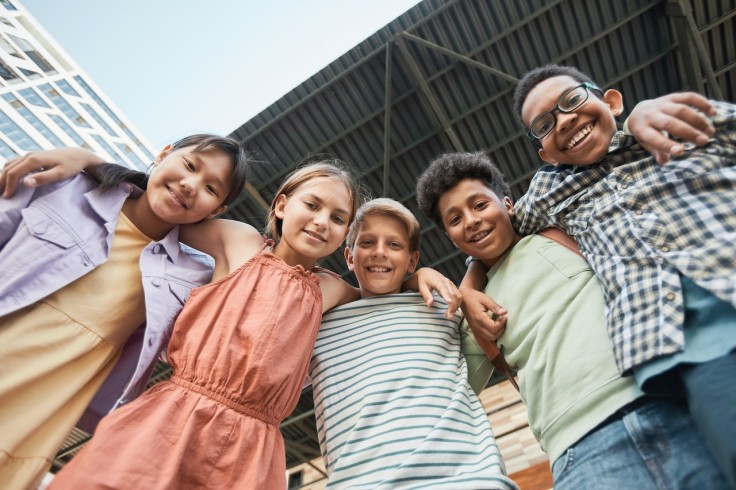
The pandemic forced kids to stay inside their homes for the last couple of years, isolated from relatives, friends, school, and other communities. There were online interactions, but they cannot equate to building close, deep connections and friendships.
Maybe they have friends, but according to CNN, parents and caregivers perceived that something was missing - "an intimacy or dependency they recalled from their childhood friendships."
Now that the pandemic is easing up, things are returning to normal, and children are finally making their way back to school. They should start making friends and building relationships personally and in the open.
Even though the family was able to build strong connections during the pandemic, making friends outside their homes is essential.
Karen VanAusdal, senior director of practice at the Collaborative for Academic, Social and Emotional Learning, emphasized that as necessary as family bonds are, friends provide a significant social outlet outside one's family, where children can have more space to figure out who they are.
Experts say that friendships are an essential part of childhood. Not only for the apparent reason that connecting with others feels great, but most importantly, friendships create essential developmental opportunities that lead to higher functioning in the academe and life.
"For young people, a lot of how they are building their identity is through their peers. Friendships are the places where we get to try out new ideas, practice new social skills, branch out of our comfort zone, and share our feelings," VanAusda expressed.
'Now there is some social catching up to do'
According to an education reporter and author of the upcoming book "The Stolen Year: How COVID Changed Children's Lives, and Where We Go Now," Anya Kamenetz, parents or any of us cannot do anything anymore about the social setback the pandemic has created. What can be done now is to catch up socially, and for sure, kids will need extra help in building or rebuilding social ties as they go back to school this year.
Here are several approved strategies by experts to help children:
1. Start at the beginning.
Children may have already forgotten how to introduce themselves or start a conversation with a friend, so parents need to teach and guide them with conversation starters — how to introduce themselves, how to talk about apologizing and sharing and then allow them to practice with family first.
2. Model curiosity.
Parents should regularly ask their children about their friends. This can help kids develop deeper relationships, according to Maurice J. Elias, professor of psychology at Rutgers University in New Jersey and coauthor of "Emotionally Intelligent Parenting." Asking questions regularly will make children excited to share new details about their friends. VanAusdal suggested that parents share how important friendships are to them so the kids can start understanding the value of keeping and maintaining friendships over time.
3. Be open about potential friends.
Parents should have a broad and open mind regarding their children's potential friends — who they are and where they come from. Support should be shown. Inclusivity should also be preached. This will teach kids that everyone belongs and is potential friend material.
4. Limit digital screen time.
Parents should always encourage analog play. Make sure that children are interacting and conversing and not just merely together playing on their gadgets.
5. Take it slow.
Making friends and building lasting relationships should be done one step at a time. It will not happen overnight, especially if the child is a little extra sensitive to the effects of the pandemic. Give children enough time to adapt and adjust.
If the Kids are not yet ready, let them be
Dr. Jack Shonkoff, a pediatrician and early-childhood development expert at Harvard's Center on the Developing Child, pointed out that most kids will come out fine from the pandemic and isolation because humans are biologically wired to adapt.
Parents are reminded not to fret too much about what their kids might be missing right now, New York Times stated. Several pediatricians and psychologists have offered reassurance and confirmation about the isolation many children have experienced because of the pandemic.
They declared that kids tend to be resilient and adaptable. Time spent and interactions with parents, siblings, and even pets are beneficial. There is much to be gained even from their time alone. Thus, even without interaction with friends for a while, they can still develop social and emotional characters and behaviors that will prepare them to pursue real-world friendships in time.